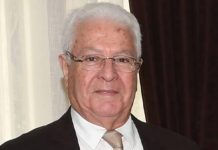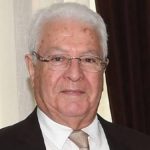ALGIERS- Cuban Film Week opened, Monday in Algiers, with the screening of the feature-length film “Kangamba,” as part of the celebration of the 60th anniversary of the establishment of diplomatic relations between Algeria and Cuba.
Hosted at the Ibn Zeydoun hall, this event is part of the 60th anniversary of diplomatic relations between the two countries, officially established on October 17, 1962.
Present at the screening, the Cuban ambassador to Algeria, Armando Vergara Bueno, affirmed that the Algerian-Cuban diplomatic relations, established 60 years ago, will be celebrated through a program of cultural activities including, in particular, film screenings. He stressed that “his country and Algeria are linked by historical relations of friendship and solidarity”, recalling, in this regard, the state visits, made to Algeria, by the former Cuban president, Fidel Castro, who died in 2016, and revolutionary leader Che Guevara.
“The films, programmed within the framework of this Week, give a historical insight into Cuba that had supported the Algerian people in their struggle for independence as well as the national liberation struggles in African countries, such as; Angola”, he added.

Released in 2008, “Kangamba” depicts the fight of Cuban soldiers who supported forces loyal to the Angolan government in 1983. Directed by Rogelio Paris, this 96-minute feature film looks back on the battle of Cangamba, a city in the hands of the Popular Movement for the Liberation of Angola (MPLA) with the support of Cuban Internationalist Fighters, who fought against armed troops supported by South African assessors. Cuban Film Week will run until September 25 with six films on the program that will be screened at the Ibn Zeydoun Hall.
“El Benny”, “Cuba libre”, Elpidio Valdès” and “José Marti, l’oeil du canari” or “José Marti, the eye of the canary”, are among the films programmed for this cultural event.
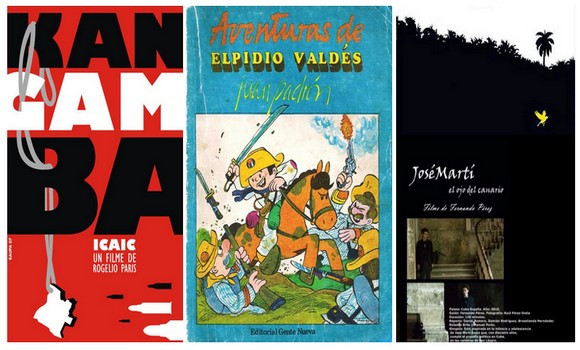
El Benny, for its part, delighted, last Tuesday, moviegoers as well as music lovers. Between drama and musical comedy, the exceptional career and virtuosity of Cuban singer Benny Moré, as well as his premature death at the age of 43 are among other axes of this work released in 2006, directed and co-written by Jorgé Luis Sanchez, distant relative of Benny Moré.
Co-written with Abrahán Rodríguez, the film is a fiction inspired by the life of the artist, singer with a tenor voice, genius and talented improviser with an ability to master all genres of Cuban music, including bolero, the cuban sound and the mambo. The filmmaker recounts, during 134 m, the artistic journey of this musician considered as the greatest interpreter of Cuban music. In the early 1950s, Moré, or El Benny left Duany’s orchestra to launch “Banda Gigante”. In flashback, we learn of his success in Mexico. Moré is caught up in the events related to the Batista coup in Cuba. He visits Venezuela where he suffers the machinations of a vengeful businessman. The film highlights his addiction and fight against alcoholism which caused health concerns that marked the end of his career.
Rewarded at several festivals, the film won, among others, the “First Work” (Opera Prima) at the New Latin American Cinema festival in Havana in December 2006. For having played the role of Benny Moré, the young Cuban actor Renny Arozarena is the winner of the Boccalino prize for best performance for protagonist at the Locarno international film festival in August 2006.
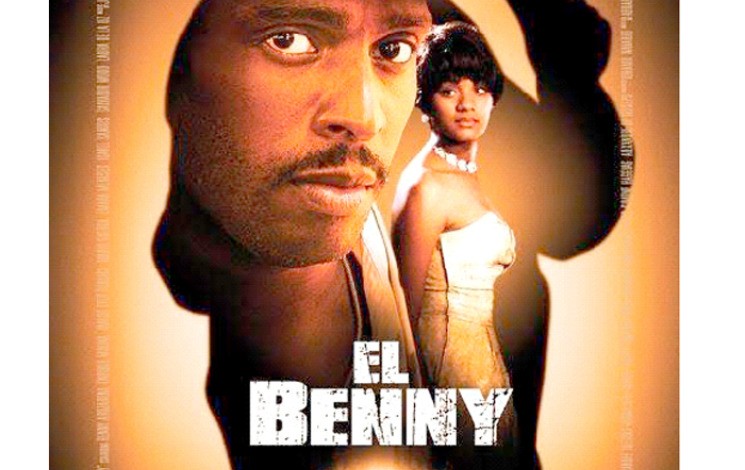
As for the screening of “José Marti, the eye of the canary” film, already screened in Algeria on the occasion of the Algiers film festival, the 120-minute artistic production looks back on the early age of the great intellectual and historical figure, as well as the founder of the Cuban Revolutionary Party, José Marti, directed by Fernando Pérez Valdès.
The formative years of Cuban national hero José Julián Martí Pérez are explored in Fernando Pérez’s handsome, robust historical epic, set during the 1860s in colonial Havana. Martí, The Eye of the Canary follows “El Apóstol” from the age of 9 to 17, as he is played with deep conviction by Daniel Romero as he experiences firsthand the brutal inequalities of Spanish colonial rule, and feels the fire of injustice rise within him.
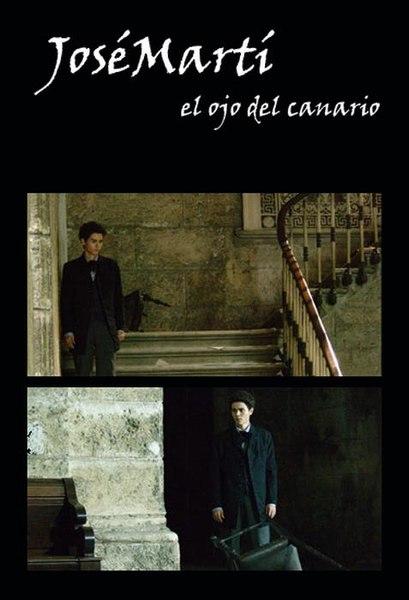
Elpidio Valdés (1979) / 1hr10min, is a cartoon character and comic who starred in a number of features, shorts and strips of the same name. He was created in 1970 by cartoonist and Cuban filmmaker Juan Padrón, considered the father of Cuban film animation and director of the first three animated feature films produced by the Cuban Institute of Cinematographic Art and Industry.
Elpidio Valdes is a mambí colonel fighting for the liberation of their homeland from Spanish colonialism, commanding a squadron of cavalry, and represents the Cuban peasants in the 19th century slaves joined, and some landowners to form the Army of liberation.
He owes his name to Cecilia Valdés, Cuban protagonist of a novel of the 19th century.

Sneak peek into Algerian Cuban relations:
Algeria has had a strong and solid allyship with Cuba since its independence from French colonialism in the early 1960s. Cuba and Algeria formed strong diplomatic links due to their historical and ideological proximity. Indeed, despite their geographical distance, the two countries saw themselves as the models of a successful socialist revolution against imperialist forces. More recently, Algeria invited the Cuban Minister of Foreign Affairs Bruno Rodriguez to participate in the festivities celebrating the 60th anniversary of the Independence.
Besides, President of the Republic Abdelmadjid Tebboune received, at the headquarters of the Presidency of the Republic in Algiers, the Cuban Minister who conveyed him a message from his Cuban counterpart Miguel Diaz-Canel. Following the meeting, the head of the Cuban diplomacy tweeted: ” I had the honor of being received by Algerian President Abdelmadjid Tebboune. We confirmed disposition to continue strengthening the excellent political relations, based on historical & brotherly ties; and promote economic, commercial, financial and cooperative links.”
How it all started?
When Algeria snatched its independence from France in 1962, Ahmed Ben Bella, a few days after being elected Prime Minister, arrived in New York on October 15 to participate in Algeria’s accession ceremony to the United Nations.
The next day, he boarded a Cubana de Aviación for the Caribbean island and was greeted at Havana’s Jose Marti International Airport by the commander-in-chief of the Cuban Revolution, Fidel Castro.
Soon after Ben Bella’s visit, Fidel gave a speech at the opening of the Playa Giron School of Medicine in Havana, where he proposed the idea of sending a medical brigade to help Algeria, which after independence suffered from a mass departure of French doctors and led to a significant shortage of health personnel in the country.
The medical team consisted of 54 health workers who flew to Algeria. There were 29 doctors, four dentists, 14 nurses, and seven health technicians.
In his speech, Castro said that “Most of the doctors in Algeria were French and many of them left the country. There are millions of Algerians and colonialism left them with many diseases. The population of Algeria is 4 million more than the population of Cuba, but they only have a third of our doctors or even less. For this reason, I informed our Cuban students that we require about 50 doctors to volunteer to go to Algeria.”
Castro’s words had great resonance and received an immediate response from many Cuban doctors who expressed their willingness to go and help the Algerians. As such, the first Cuban medical solidarity journey in Algeria came in the context of the latter having resisted and defeated the French colonial regime, and this pushed Cuba to provide services beyond the island’s borders.
This is how Cuba’s first medical solidarity mission took off to provide healthcare services beyond the borders of the country.
Noting that Cuba celebrated, in 2021, the 58th anniversary of sending its first medical mission to Algeria on 23 May 1963. And this year, both countries are celebrating the 60th anniversary of the establishment of diplomatic relations in October 1962. To this end, Cuban Ambassador to Algeria Armando Vergara underlined, at a meeting organized, few months ago, on this occasion, in the presence of former Cuban diplomats, representatives of embassies accredited to Algiers, the Algerian-Cuban parliamentary friendship group, the depth of the Algerian-Cuban friendship as well as the common history of the struggle of the two sisterly peoples.
“Our two countries are bound by a deep and solid friendship as well as strong historical relations. Our two revolutions were nourished by the noble values of respect for human rights, freedom, peace and the fight against all forms of injustice and exploitation,” added the Cuban Ambassador.
At the same time, he recalled a number of facts and episodes attesting to the quality of relations between the two States and peoples, including the fact that Cuba was the first country on the American continent to recognize, in 1961, the Government of the Algerian Republic (GPRA), considering it to be “a source of pride for Cubans”.
Just as he recalled the 5 State visits made to Algeria by the former Cuban President, Fidel Castro, as well as that of the former Algerian President, Ahmed Ben Bella to Cuba, as well as the long and continuous cooperation in the health sector, with the first Cuban medical mission to Algeria taking place in 1968.
For his part, the former Cuban ambassador to Algeria (1974-1978), Giraldo Mazola, recalled, among other things, the historic visit of Commander Che Guevara to Algeria, an Argentinian of origin who acquired Cuban citizenship, in July 1963, and this, on the occasion of the 1st anniversary of the country’s independence.
The support of the Cuban authorities to Algeria during the aggression of its Moroccan neighbor in 1963 was also mentioned by the Cuban diplomat, Do Dé Urra, who had been part of the Cuban delegation that set up, in January 1963, the first diplomatic representation of this country in Algeria.
The speakers, moreover, did not fail to highlight the “support” repeatedly demonstrated by Algeria for their country in the struggle for its sovereignty and the building of its Republic, noting that our country “has always been on the side of Cuba”.
“Algeria has always been a sisterly country. It helped us a lot in the Latin American Liberation Movement. This is why we keep a great memory of the relationships that we have maintained”, specified, for his part, Mr Dé Urra.
This meeting was an opportunity for the Cuban ambassador to honor, symbolically, some Algerian students who joined, before independence, his country to study there. The latter testified to the “warm welcome” to which they were entitled by their Cuban brothers.
Following the death of former Algerian President, Abdelaziz Bouteflika in 2021, the Cuban President Miguel Díaz-Canel Bermúdez decreed national mourning from 06:00 am until 12:00 on the evening of September 21, 2021.
“President Miguel Díaz-Canel Bermúdez decreed national mourning from 06:00 am until 12:00 on the evening of September 21, 2021, following the death of Abdelaziz Bouteflika, former Algerian president and dear friend of Cuba, Fidel and our Revolution,” read a tweet from the Cuban Embassy in Algeria.


















